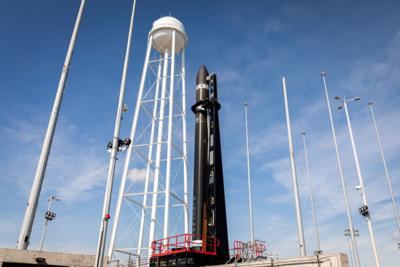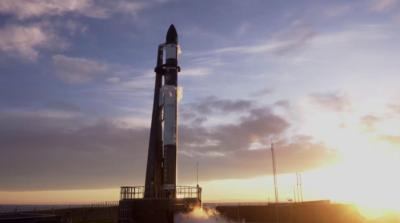Tue, Sep 08, 2020
Missions Will Launch From Wallops Island Complex 2
Rocket Lab has been granted a five-year Launch Operator License by the FAA for Electron missions from Rocket Lab Launch Complex 2.

The Launch Operator License allows for multiple launches of the Electron launch vehicle from Rocket Lab Launch Complex 2, eliminating the need to obtain individual, launch-specific licenses for every mission and helping to streamline the path to orbit and enable responsive space access from U.S. soil.
Located at the Mid-Atlantic Regional Spaceport within the NASA’s Wallops Flight Facility on Wallops Island, Virginia, Launch Complex 2 has been designed to provide responsive launch capability to support for U.S. government missions. Between Launch Complex 2 in Virginia and Launch Complex 1 in New Zealand, Rocket Lab can support up to 130 launches each year across a range of orbital inclinations.
The FAA Launch Operator Licence is a major administrative milestone ahead of upcoming Electron launches, including a NASA mission to lunar orbit in support of Artemis, the Agency’s program to return humans to the Moon.

The Cislunar Autonomous Positioning System Technology Operations and Navigation Experiment (CAPSTONE) mission will use Rocket Lab’s Electron launch vehicle and Photon satellite platform to deploy to the same unique lunar near rectilinear halo orbit (NRHO) that is planned for NASA’s future lunar outpost called Gateway. CAPSTONE intends to validate navigation technologies and verify the dynamics of this halo-shaped orbit to reduce risk for future spacecraft.
Rocket Lab founder and CEO, Peter Beck, says: “Having FAA Launch Operator Licenses for missions from both Rocket Lab launch complexes enables us to provide rapid, responsive launch capability for small satellite operators. With 14 missions already launched from LC-1, Electron is well established as the reliable, flight proven vehicle of choice for small sat missions spanning national security, science and exploration. With our upcoming missions from Launch Complex 2, we’re ushering in an era of even more flexibility and launch availability for these important government missions.”
More News
Its Offerings Are Lighter, Cleaner, and Now Pushing Past 1,000nm on SAF Jet Fuel DeltaHawk’s diesel-powered aircraft lineup has seen incredible upgrades over the last few yea>[...]
The Airplane Experienced A Total Loss Of Engine Power On December 3, 2025, about 1600 central standard time, a Mooney Aircraft Corp. M20K, N57229, was substantially damaged when it>[...]
Make Sure You NEVER Miss A New Story From Aero-News Network Do you ever feel like you never see posts from a certain person or page on Facebook or Instagram? Here’s how you c>[...]
Aero Linx: European Society of Aerospace Medicine (ESAM) As a pan-European, independent forum, it works to promote the safety and health of all persons involved in aviation and spa>[...]
“We are excited to see Wisk achieve this milestone, and I’m so proud of the team that made it possible. The team at Wisk has built advanced technologies across flight c>[...]
 Aero-TV: DeltaHawks Diesel Power Steps Into the Spotlight
Aero-TV: DeltaHawks Diesel Power Steps Into the Spotlight NTSB Prelim: Mooney Aircraft Corp. M20K
NTSB Prelim: Mooney Aircraft Corp. M20K ANN FAQ: Turn On Post Notifications
ANN FAQ: Turn On Post Notifications ANN's Daily Aero-Linx (12.20.25)
ANN's Daily Aero-Linx (12.20.25) Aero-News: Quote of the Day (12.20.25)
Aero-News: Quote of the Day (12.20.25)




